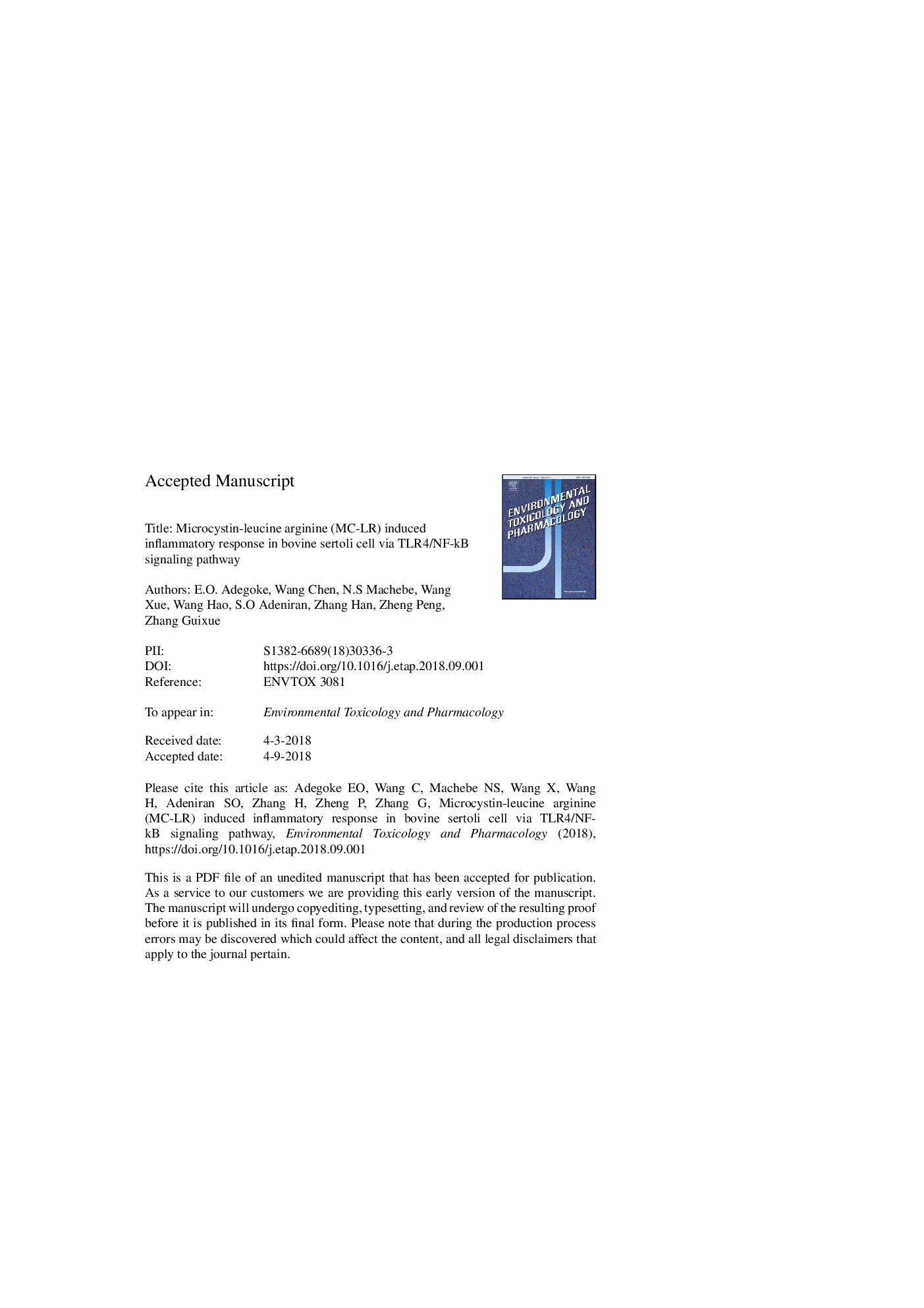| Article ID | Journal | Published Year | Pages | File Type |
|---|---|---|---|---|
| 9954997 | Environmental Toxicology and Pharmacology | 2018 | 47 Pages |
Abstract
Sertoli cells were treated with 0, 20, 40, 60 and 80âμg/L of MC-LR to investigate its toxic effects, mechanism of action and immune response of the cells. Our results revealed that treatment containing 20âμg/L of MC-LR was non-toxic to the cells. Treatments containing 40, 60 and 80âμg/L of MC-LR reduced the cell viability, induced nuclear morphological changes and downregulated the blood-testis barrier constituent proteins within 48âh after treatment. The toll-like receptor 4 (TLR4) and nuclear factor-kappaB (NF-kB) were activated and significantly (Pâ<â0.05) upregulated in cells treated with 40, 60 and 80âμg/L of MC-LR compared to the control. The pro-inflammatory cytokines were upregulated within 48âh after treatment. However commencing from 72âh, upregulation of anti-inflammatory cytokines and expression of blood-testis barrier constituent proteins was observed. This study indicates that MC-LR induced inflammatory response in bovine Sertoli cell via activation of TLR4/NF-kB signaling pathway.
Related Topics
Life Sciences
Environmental Science
Health, Toxicology and Mutagenesis
Authors
E.O. Adegoke, Wang Chen, N.S. Machebe, Wang Xue, Wang Hao, S.O. Adeniran, Zhang Han, Zheng Peng, Zhang Guixue,
